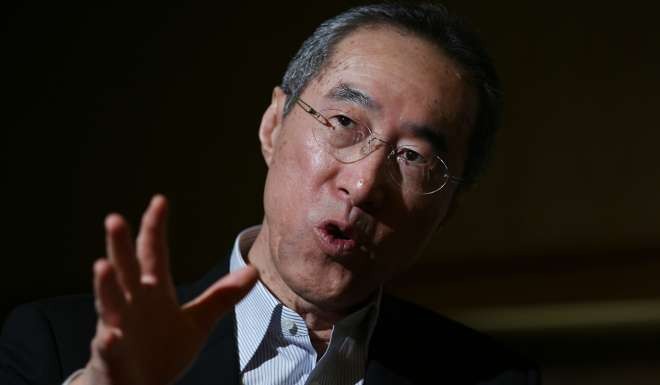
Beijing is still feeling Hong Kong’s pulse before endorsing a candidate for chief executive
The country’s leaders have bigger issues on their plate at the moment, so the city will just have to be patient
Five years ago this month, the whole town was abuzz over the prospect of a red-hot race for Hong Kong’s top job with the resignations of then chief secretary Henry Tang Ying-yen and Leung Chun-ying, who was convenor of the Executive Council, the highest body of advisers to the chief executive. The excitement was enhanced by the knowledge that Tang was Beijing’s preferred choice but Leung was insisting on running.
Now it’s campaign time again, but there’s been no surprise resignation or declaration yet – only political gossip. The reason is simple: Beijing is still considering whom to endorse.

It’s therefore believed that nothing will come from Beijing before this key plenum, and there have been suggestions that Beijing may even postpone its decision until the end of the year, when the new 1,200-member Election Committee is formed in December to go about choosing the city’s next chief executive.
What’s going on up north is nevertheless revealing, though not directly linked with Hong Kong, including last month’s mass dismissal of 45 national lawmakers in northeastern Liaoning (遼寧) province.
The unprecedented crackdown on provincial election fraud was but another indicator of the determination of President Xi Jinping to maintain a clean pool of local talent. Beijing is due to pick some outstanding local stars for personnel reshuffles at different levels ahead of next year’s party congress, which will be highlighted by changes among the top hierarchy of the Standing Committee members of the Politburo.
Several members of this all-powerful party core will reach retirement age then, including Zhang Dejiang, China’s top legislator who oversees Hong Kong affairs.
Yet to be known is who will replace Zhang, and whether the future line-up of the top leadership will be as, or more, familiar with Hong Kong. But more telling may be a revisit to the four criteria Beijing set for the city’s leader: that a candidate must be acceptable to both the central government and the people of Hong Kong; be competent; be capable of maintaining the prosperity and stability of Hong Kong; and ready to safeguard national security, sovereignty and development interests – which includes cracking down on any independence moves.
These general principles may provide good references as to who intends to run and the backing he or she has, as well as to those who cannot wait to see incumbent Chief Executive Leung Chun-ying go.
The theory is: while Zhang is seen by many as quite supportive towards Leung, his backing for anyone could be seen as an extension of Beijing’s preference, as he is a member of the Politburo Standing Committee. Applying the same logic, Beijing’s question can also be straightforward: is the ABC (anybody but CY) sentiment something personal or targeted at whoever happens to fill that particular position?

